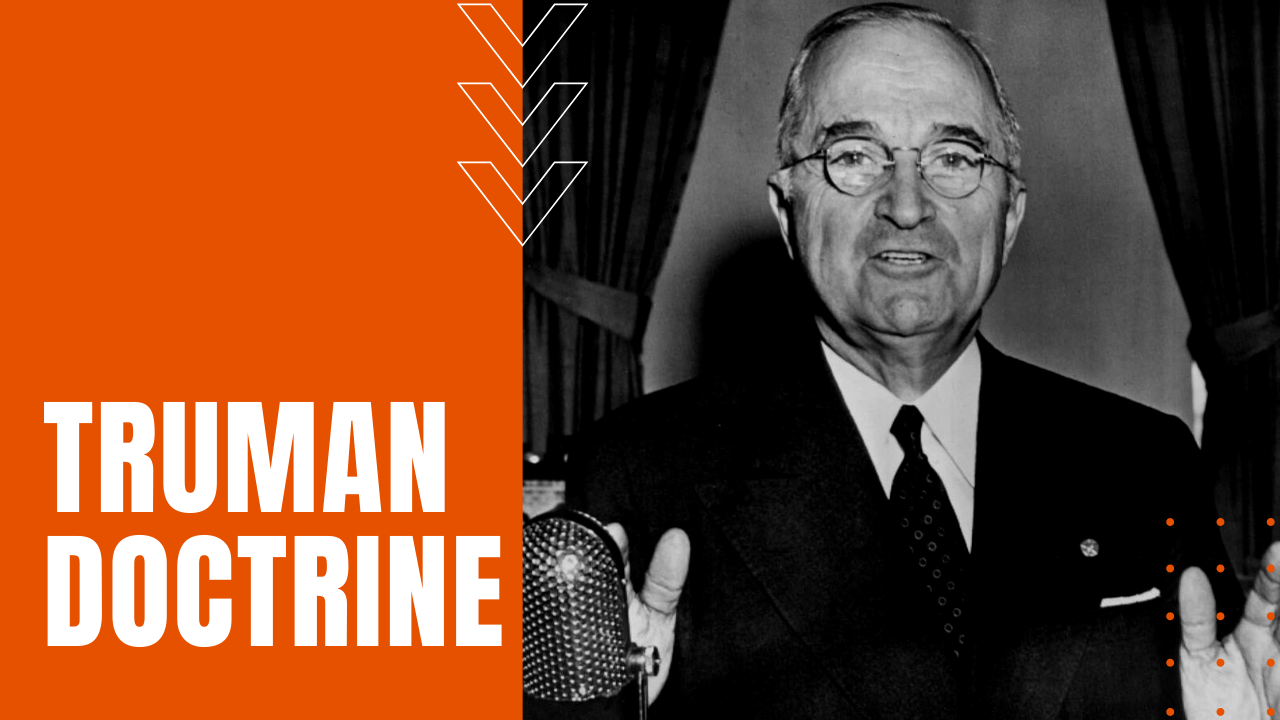Truman Doctrine: Communism Containment Policy

Buried in debt caused by their participation in World War Two, in February of 1947, Britain announced to the United States that they could no longer provide military and economic aid to Turkey and Greece, which led the Truman administration to fear that both nations were under threat by the Soviets for communist expansion and aggression.
Leftist forces in Greece had conducted ongoing battles with the Greek Royal government since the end of World War II, while the Soviets were pushing for greater control over the Dardanelles, which was a strategic waterway connecting the Black Sea to the Mediterranean. In a speech delivered on March the 12th, 1947 before a joint session of Congress, President Harry S. Truman pledged to contain the spread of communism in both Turkey and Greece, declaring:
“It must be the policy of the United States to support free peoples who are resisting attempted subjugation by armed minorities or by outside pressures.”
President Harry S. Truman
He went on to say that nations could adopt a way of life “based upon the will of the majority,” which allowed governments to provide “guarantees of individual liberty,” or face an opposite way of life “based upon the will of a minority forcibly imposed upon the majority.”
What was the Purpose of the Truman Doctrine?
Considered by most historians to be the starting point of the Cold War, Congress soon appropriated $400 million in aid to both Turkey and Greece, while establishing U.S. Cold War foreign policy in a proactive attempt to protect nations against communist aggression. While Truman’s logic successfully convinced many Americans that the United States was locked in a life-or-death struggle against the spread of communism, not everyone embraced the Truman Doctrine as gospel truth.
Upon closer examination, many saw that the insurgency in Greece was supported by the Tito regime in Yugoslavia, who was in the process of breaking from the Soviets shortly after Truman’s anti-communist declarations had been made, while the Soviets were not demanding outright control over the Dardanelles, but were merely seeking assurances that they would not be denied access to the waterway as the Nazis had done in World War Two.
In the end, despite hefty infusions of cash into the economies of Greece and Turkey, both nations drifted into repressive right-wing regimes in the years following the Truman Doctrine, setting the United States and the Soviet Union on a costly 40-year Cold War-path of puppet wars around the world, all the while cloaked under the underlying fear of mutually-assured nuclear destruction.
